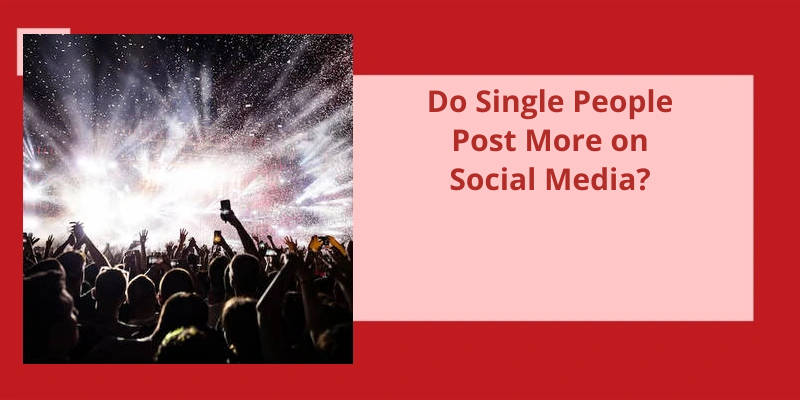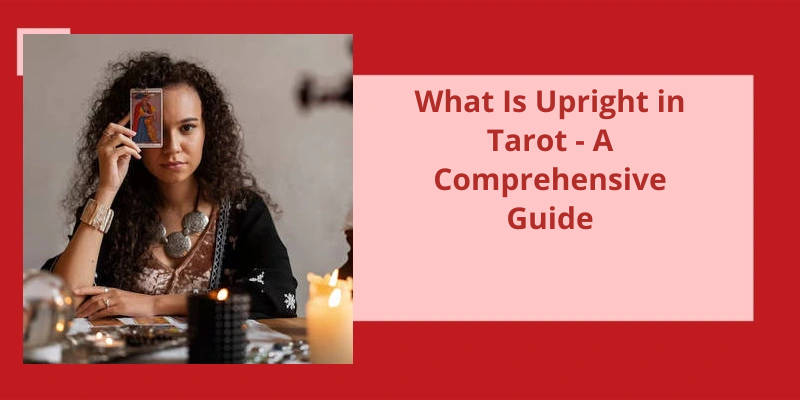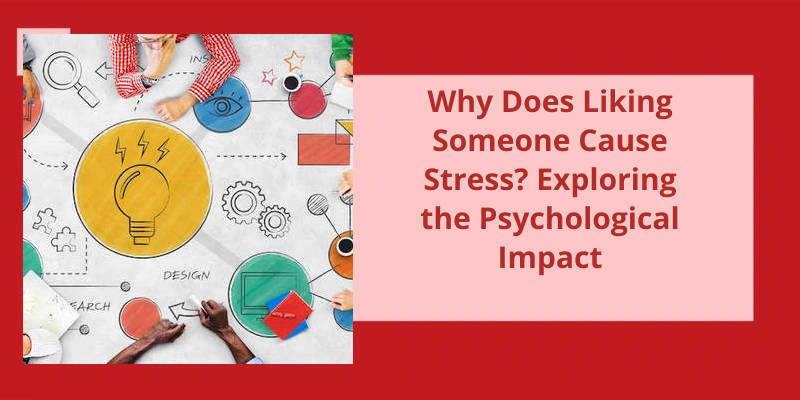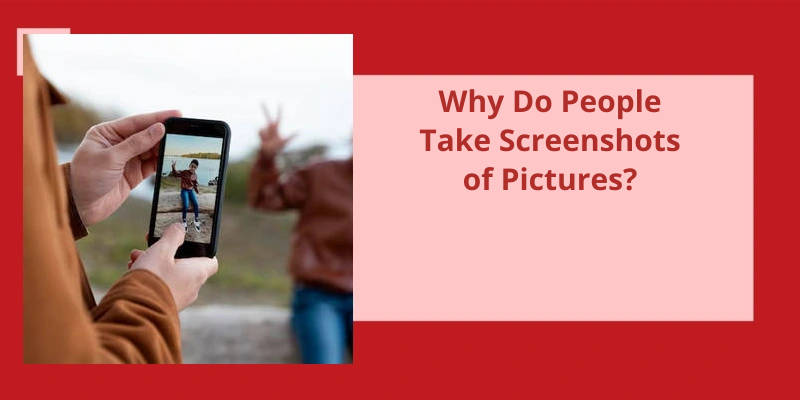In today's digitally-driven world, social media has become an integral part of our daily lives, enabling us to connect, share, and communicate with others in unprecedented ways. With a plethora of platforms at our fingertips, it comes as no surprise that social media usage has skyrocketed over the years. However, an intriguing question arises: do single people post more on social media? This query delves into the potential correlation between relationship status and online activity, exploring whether those who’re unattached tend to be more active on social media platforms. By examining various factors such as self-expression, social interaction, and personal fulfillment, we can gain a better understanding of the dynamics at play and discern any patterns or trends that may exist in the digital realm. So, let's embark on this investigation to unravel the relationship between singledom and social media posting behavior, and uncover whether our relationship status truly influences our virtual presence.
What Does It Mean if Someone Posts a Lot on Social Media?
Others may crave social interaction and use social media as a way to connect with others. These individuals may post frequently to start conversations, share updates about their lives, or simply engage with others who’ve similar interests. For them, social media can serve as a virtual community where they feel a sense of belonging and connection.
Furthermore, some individuals may use social media as a platform to showcase their achievements and milestones. By frequently posting about their accomplishments, they may seek recognition and admiration from their online followers. This desire for validation can drive them to continuously post updates and share their successes, as this boosts their self-esteem and sense of accomplishment.
In addition, posting frequently on social media can also be a result of boredom or a need for constant entertainment. Social media platforms offer a wide range of content to explore, from news articles to funny videos and memes.
Furthermore, people who post regularly on social media may simply enjoy documenting their lives and sharing moments with others. They may view social media as a digital diary or scrapbook, using it to record memories and experiences. Posting frequently allows them to chronicle their journey and share it with their online community, creating a sense of nostalgia and connection as they reflect on past events.
Lastly, it’s necessary to acknowledge that there’s no one-size-fits-all explanation for why someone may post a lot on social media. Each individuals motives and intentions can vary greatly, and it’s essential not to make blanket assumptions. While seeking attention or validation may be a motivation for some, others may simply find joy in social media as a means of expression, connection, or entertainment. Ultimately, understanding an individuals motivations requires a deeper understanding of their personal circumstances and psychological makeup.
While social media platforms have become a popular way for couples to share their lives with the world, a recent study raises an intriguing question: could refraining from posting about one’s relationship online actually lead to greater happiness? Surprisingly, the study indicates that couples who choose to keep their love life private on social media may be more content in their relationship compared to those who regularly share updates. This finding sheds light on the potential influence and impact of social media on romantic partnerships.
Are Couples Who Don’t Post on Social Media Happier?
Research has delved into the correlation between social media usage and relationship satisfaction, specifically focusing on whether couples who refrain from posting about their relationship on social media are ultimately happier. In a recent study, couples were asked to rate the overall happiness within their relationship, taking into account their social media habits.
Couples who prioritize privacy and choose not to share intimate details of their relationship online appear to experience higher levels of happiness. It’s plausible that maintaining privacy and keeping personal matters away from public scrutiny contributes to a healthier dynamic within the relationship, allowing for a more intimate connection unaffected by external influences.
Additionally, the studys results prompt speculation about the underlying motivations behind posting on social media. Couples who frequently share updates about their relationship online may be more focused on external validation and seeking approval from their social media networks. This preoccupation with external validation may potentially detract from cultivating a strong emotional bond with their partner, as their attention and efforts are divided between nurturing the relationship and curating an idealized online presence.
Relationship dynamics and individual preferences vary greatly, and therefore, blanket generalizations should be avoided. Ultimately, the decision to share or abstain from sharing ones relationship on social media should be guided by personal values, the couples communication style, and the level of comfort each partner feels regarding navigating the digital landscape.
The Impact of Social Media on Relationship Dynamics
Social media has had a profound impact on relationship dynamics. With the rise of platforms such as Facebook, Instagram, and Twitter, people have more opportunities than ever to connect, communicate, and share their lives with others. This continuous exposure to other people’s relationships, accomplishments, and activities can sometimes lead to negative effects, such as jealousy, comparisons, and unrealistic expectations. Additionally, social media can create a false sense of intimacy and connection, as individuals may prioritize their online presence over real-life interactions. However, it’s important to note that the impact of social media on relationships can vary greatly depending on the individuals involved. Some people may use social media as a tool to strengthen their relationships by sharing experiences and staying connected, while others may find themselves caught in the pitfalls of constant digital comparison and distraction. Ultimately, it’s essential for individuals to maintain a healthy balance between their online and offline lives and to be mindful of the potential effects that social media can have on their relationship dynamics.
Source: Are couples really as happy as they seem on social media?..
However, the underlying motivations for why people post so many photos on social media go beyond external validation. People are driven by a multitude of factors such as self-expression, connection, and even the pursuit of personal branding. It’s a complex phenomenon, deeply intertwined with our need for social recognition and affirmation.
Why Do People Post So Many Photos on Social Media?
There are multiple reasons why people post a plethora of photos on social media. One underlying factor is the desire for validation and recognition from others. The more we post on social media, the more the platform “rewards” us with likes, follows, and content engagement. This solidifies our belief that the identity we portray on social media is legitimate and encourages us to continue posting for more feedback in return.
Moreover, documenting our lives through photographs allows us to capture and share moments that hold personal significance. By sharing these images, we seek to create a digital archive of memories and experiences. It becomes a way to connect with others, allowing them to partake in our lives and vice versa.
Lastly, the rapid advancement of technology and smartphone cameras has made capturing moments and sharing them easier than ever before. With the convenience at our fingertips, it’s become second nature to document and publish our daily experiences online. The accessibility of social media platforms has further amplified this behavior, making it effortless to post multiple photos and engage with others.
However, the reality is that the ideal posting cadence varies for each platform and audience. While some may recommend posting a certain number of times per day or week, excessively frequent posting can actually harm your engagement and reach on social media. In this article, we will explore the negative consequences of posting too much on social media and how it can affect your online presence.
Why Is Posting Too Much on Social Media Bad?
But the truth is, it really depends on your audience and the platform you’re using. Posting too much can be seen as spammy and annoying. It can also dilute the quality of your content, as you may not have enough time to create something valuable and meaningful with each post.
Another reason why posting too much on social media is bad is because it can negatively impact your mental health. Constantly being plugged in and seeking validation through likes and comments can lead to feelings of anxiety, comparison, and low self-esteem. It can also be a huge time waster, taking away precious time that could be spent on more meaningful activities or connecting with people in real life.
Posting too frequently can also lead to fatigue from your audience. They may become overwhelmed or annoyed by the constant stream of updates and choose to unfollow or mute your account. This can ultimately hinder your reach and engagement, as the algorithms may interpret this as a lack of interest from your followers.
Furthermore, posting too much can hinder your ability to connect with your audience on a deeper level. It takes time and effort to truly engage with your followers, respond to comments, and build genuine relationships. If you’re constantly churning out content without taking the time to listen and connect, you may miss out on valuable opportunities to form meaningful connections and establish trust with your audience.
While it’s important to maintain a consistent presence on social media, it’s equally important to find a balance and avoid posting too much. Quality over quantity should always be the priority. Take the time to create valuable content, engage with your audience, and prioritize your mental health and well-being. Remember, social media is just one aspect of life, and it should never consume all of your time and energy.
The Impact of Social Media on Mental Health and Well-Being
- Increased feelings of loneliness and isolation
- Comparison and self-esteem issues
- Depression and anxiety symptoms
- Addiction and screen time management
- Cyberbullying and online harassment
- Distorted perception of reality
- Impact on sleep patterns and quality
- Body image dissatisfaction
- Fear of missing out (FOMO)
- Decreased productivity and focus
- Loss of privacy and online security concerns
- Elevated stress levels
- Social comparison and envy
- Impacts on relationships and social interactions
Discussing social media usage can be crucial in any relationship. While there’s no definitive answer to whether or not posting your significant other on social media is necessary, it can be essential to communicate your preferences and intentions with your partner. This open and honest conversation can help avoid potential conflicts related to social media usage in the future.
Is It Bad if I Don T Post My Girlfriend on Social Media?
Some people may question whether it’s bad to not post your girlfriend on social media. The answer to this question is highly subjective and depends on the dynamics of the relationship. Relationship expert, Rodriguez, suggests that if you’re just dating and having fun, it may be better to wait before posting about your partner on social media. This viewpoint recognizes that there’s no definitive or universally agreed-upon “right” time to announce a relationship on platforms like Instagram. Ultimately, the decision regarding social media posting rests with the couple involved in the relationship.
However, it’s crucial to emphasize the importance of open and honest communication about social media early in the relationship. By establishing clear expectations and discussing how each partner wants to navigate the online world together, unnecessary conflicts can be avoided down the road. This conversation can help address any concerns or insecurities that either party may have regarding social media posting. It’s essential to remember that what may work for one couple might not work for another, and that’s perfectly okay.
Understanding that everyone has different comfort levels when it comes to sharing personal aspects of their lives online is crucial. While some individuals may feel comfortable posting about their significant other regularly, others may prefer to keep their relationship more private. It’s essential to respect each others boundaries and decisions surrounding social media. What truly matters is the quality of the relationship offline, rather than how it’s portrayed online.
The Potential Impact of Posting or Not Posting a Partner on Social Media on the Relationship Itself
Posting or not posting a partner on social media can have a potential impact on the relationship. For some individuals, sharing their relationship status and pictures of their partner on social media may serve as a way to publicly declare their commitment and showcase their happiness. It can also provide a sense of validation and recognition from friends and followers.
However, the absence of a partner’s presence on social media can sometimes lead to speculation or questions about the relationship’s status. This lack of visibility might create doubts or insecurities, especially if others are openly sharing their own relationships online. It’s important to note that people have different privacy preferences, and not everyone feels comfortable sharing intimate details on public platforms.
Moreover, focusing excessively on social media validation can potentially shift the focus away from building a strong and healthy relationship offline. Prioritizing real-life connections and open communication is crucial for a thriving partnership. Ultimately, whether or not a couple chooses to post about their relationship on social media should be a mutual decision based on their shared values, boundaries, and level of comfort.
Conclusion
While some earlier studies suggested that single individuals might engage more in self-presentation and seek validation through increased online activity, more recent research indicates that relationship status isn’t a significant determinant of social media posting frequency. Factors such as personality traits, age, and life circumstances may play more influential roles in shaping an individual's online behavior. Ultimately, it’s important to recognize that social media usage is multi-faceted and can’t be solely attributed to one's relationship status. Further investigation is needed to gain a deeper understanding of the intricate dynamics between individuals and their engagement with social media platforms.






